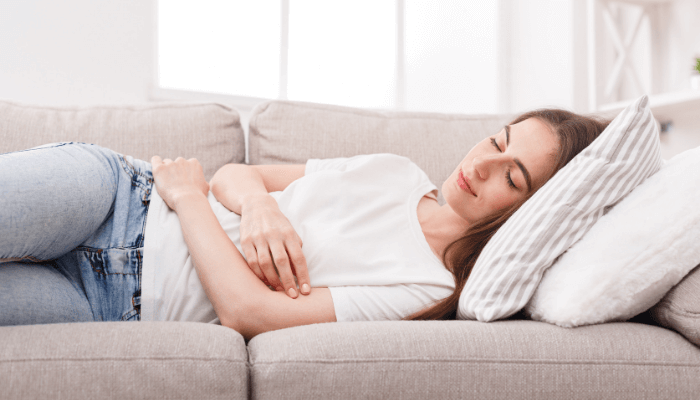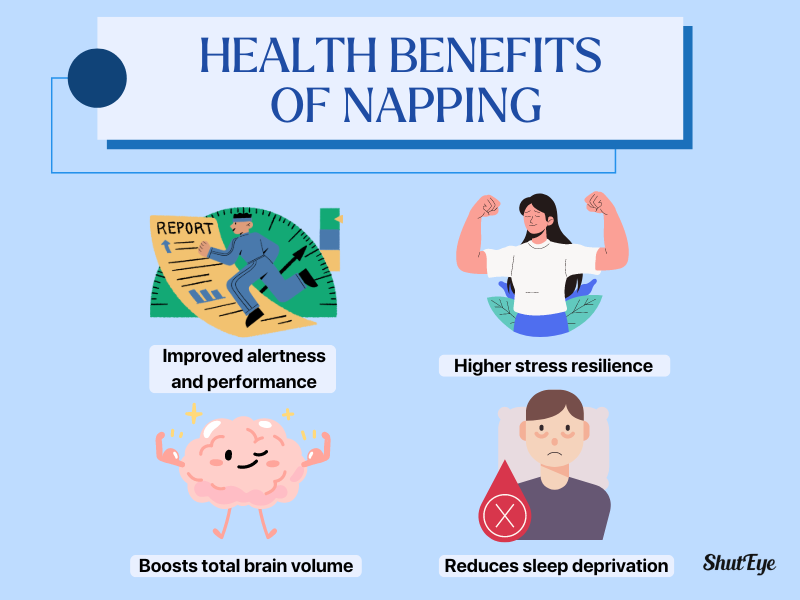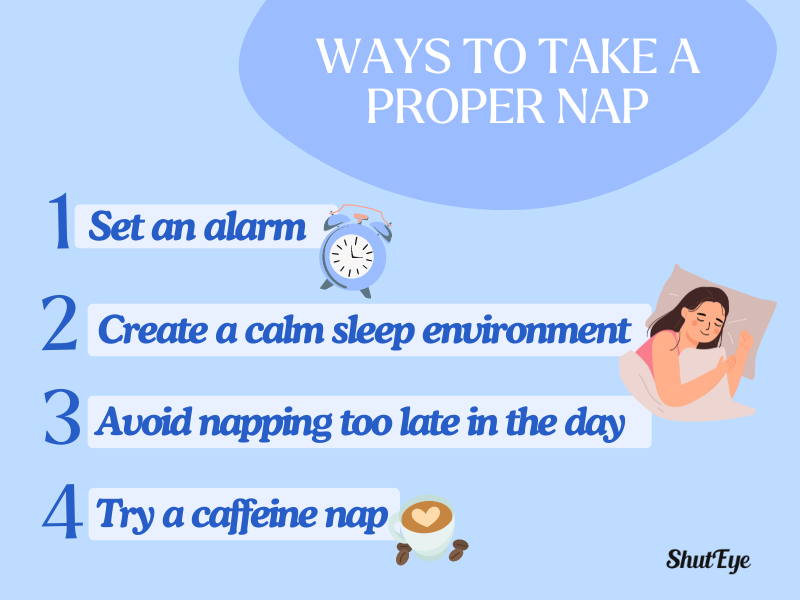


Have you ever experienced the need to take an afternoon nap after lunch? This is common! In Japan, office workers are known to take daytime naps. Even big companies like Google have sleep pods for their employees to take a power nap during the working day.
The question here is: does it really work?
Let’s explore further about power nap, how to do it, and why it is good for us to take them once in a while.

A power nap, also known as a cat nap, is a brief period of sleep that lasts between 20 to 30 minutes [1]. It usually happens during the lighter stages of sleep, just before deep sleep [2].
Power naps are meant to help someone who is tired, feel refreshed and energized quickly. It works as an alternative to coffee and other forms of caffeine if you happen to feel sluggish in the later parts of the workday or if you find it hard to stay alert.
Do power naps actually work?
The short answer is yes. In the short term, research shows that power naps can work to boost cognitive functioning and energy levels.
Additionally, because they are short naps, they do not go into slow-wave sleep or rem sleep stage in the sleep cycle. This prevents the risk of sleep inertia, the groggy feeling that you get when you wake up from a deep sleep [3].
Some other benefits of napping include:

While there are clear health benefits to taking power naps, it should also be clear that power naps are not suitable for everyone.
If you need to recharge yourself so that you can get through the day, taking a power nap is fine. It can also be particularly useful for someone who does not get enough sleep during the night and needs to recoup from the sleep loss [8].
However, if you suffer from sleep disorders like insomnia, you want to do your best to avoid taking naps during the daytime. Taking afternoon naps could make it even harder than what it is now, for you to fall asleep.
You may also like: Difference Between a Nap and a Full Night’s Sleep

When it comes to taking a proper power nap, it is important to ensure that you do not exceed 20 to 30 minutes. Otherwise, you are likely to experience a full sleep cycle.
Here are some practices that you can follow for a good napping experience:
All in all, power napping can be beneficial in improving alertness and performance, increasing our stress resilience, boosting our brain volume, and reducing the effects of sleep deprivation. However, it is not meant for everyone, especially those with trouble sleeping at night.
If you struggle with getting good nighttime sleep, ShutEye® is the solution. ShutEye® is a patented sleep-tracking app that monitors your sleep habits and offers personalized recommendations to help you improve your sleep schedule and sleep quality. Try it out now!
Ackerman, J. (2009) Napping: the expert's guide [online]. Available at: https://www.theguardian.com/lifeandstyle/2009/jan/27/napping-guide-health-wellbeing
Faraut, B., Nakib, S., Drogou, C., Elbaz, M., Sauvet, F., De Bandt, J. P., & Léger, D. (2015). Napping reverses the salivary interleukin-6 and urinary norepinephrine changes induced by sleep restriction. The Journal of clinical endocrinology and metabolism, 100(3), E416–E426. Available at: https://doi.org/10.1210/jc.2014-2566
Hsu, S. (2023) The science behind power napping and work productivity [online]. Available at: https://choosemuse.com/blogs/news/the-science-behind-power-napping-and-work-productivity
Michigan Medicine (2020) Power naps: What they are, and how they boost your energy [online]. Available at: https://medicine.umich.edu/dept/psychiatry/news/archive/202011/power-naps-what-they-are-how-they-boost-your-energy
Oriyama, S., Miyakoshi, Y., & Kobayashi, T. (2014). Effects of two 15-min naps on the subjective sleepiness, fatigue and heart rate variability of night shift nurses. Industrial health, 52(1), 25–35. Available at: https://doi.org/10.2486/indhealth.2013-0043
Paz, V., Dashti, H. S., & Garfield, V. (2023). Is there an association between daytime napping, cognitive function, and brain volume? A Mendelian randomization study in the UK Biobank. Sleep Health, 9(5), 786–793. Available at: https://doi.org/10.1016/j.sleh.2023.05.002
Precker, M. (2020) Enjoy your nap, but be aware of the pros and cons [online]. Available at: https://www.heart.org/en/news/2020/07/22/enjoy-your-nap-but-be-aware-of-the-pros-and-cons
Tollsen, M. (2024) How To Power Nap for Energy & Daytime Success [online]. Available at: https://amerisleep.com/blog/power-nap/